There’s a need to upskill Emirati employees to prepare them for the increased demand for specialized roles.
The primary reason for job changes among Emiratis is the misalignment of benefits.
Employers should consider flexible working hours, remote or hybrid options, and wellness programs to enhance work-life balance and improve staff attraction and retention.
What do Employees Value the Most in UAE?
According to the Hays GCC Salary Guide, non-salary priorities such as benefits, career development and a good work atmosphere rank highly for professionals in the Gulf region. The Hays report shows benefits packages and career development initiatives among the top factors professionals consider when evaluating roles.
Gallup’s UAE workplace study reports that 30% of employees in the UAE are engaged at work, and Gallup also notes that overall satisfaction with the workplace has increased by 15 percentage points in recent years. These findings point to an improving employee experience in the UAE.
Salary and Benefits Trends in UAE (2026)
[fs-toc-omit]UAE Employer
UAE Employer
- Nearly half of UAE employers said they expect salaries in their organisations to increase in 2026. This was reported in the Hays GCC Salary Guide and covered by regional press. Khaleej Times+1
- Around half of employers reported a positive economic outlook for 2026 in the Hays survey coverage.
- Many employers said they plan to hire or recruit for permanent roles in 2026. The Hays guide reported that a large share of employers plan permanence hiring.
[fs-toc-omit]UAE Employee [fs-toc-omit]
- In 2024 nearly half of UAE employees reported a salary increase, most commonly in the low single digits.
- A substantial share of employees expect salary increases in 2026.
Suggested: Top Recruitment Agencies in UAE
Benefits Trends in UAE
.png)
.png)
Average Salary Range for Each Role
.png)
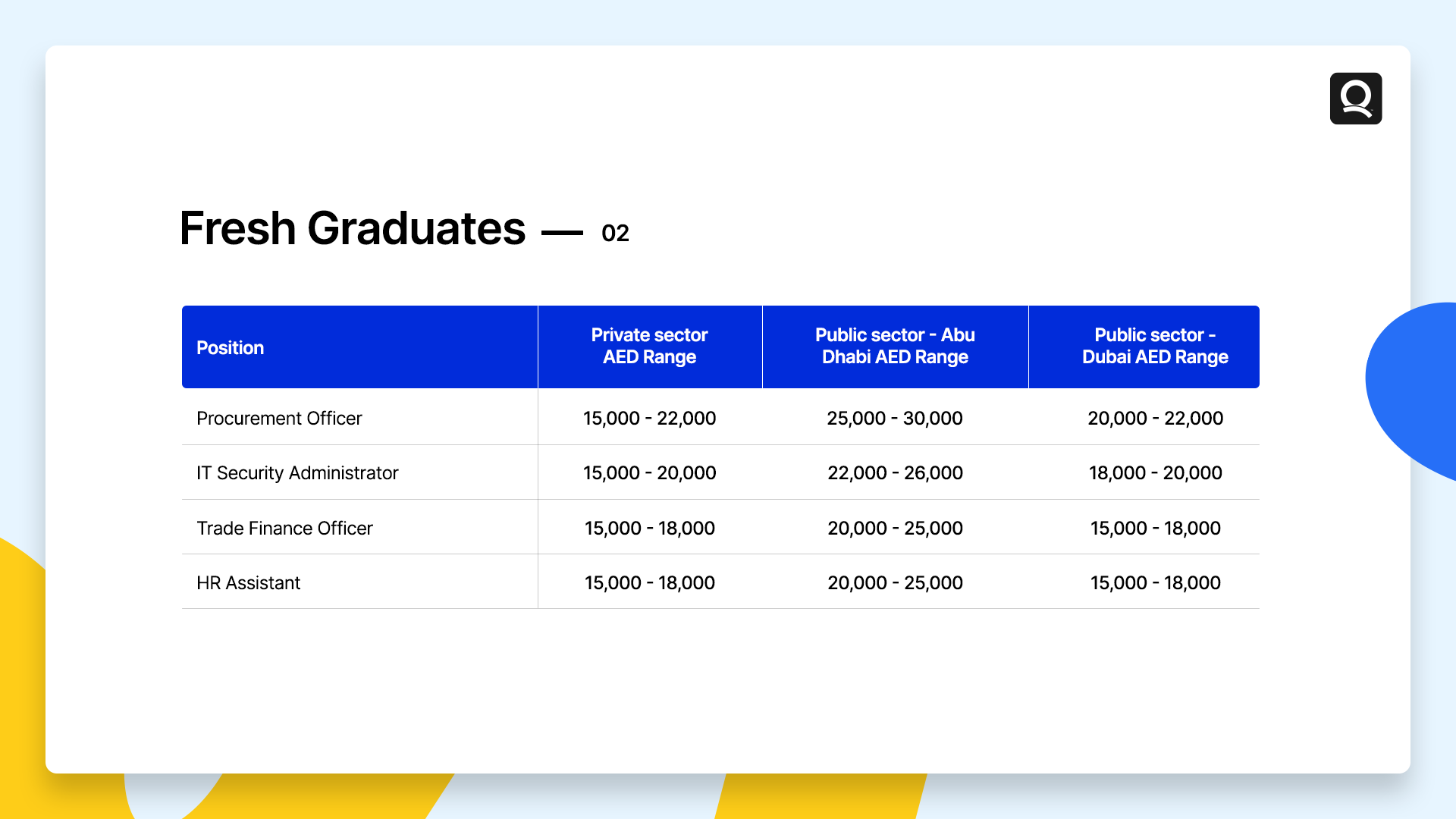
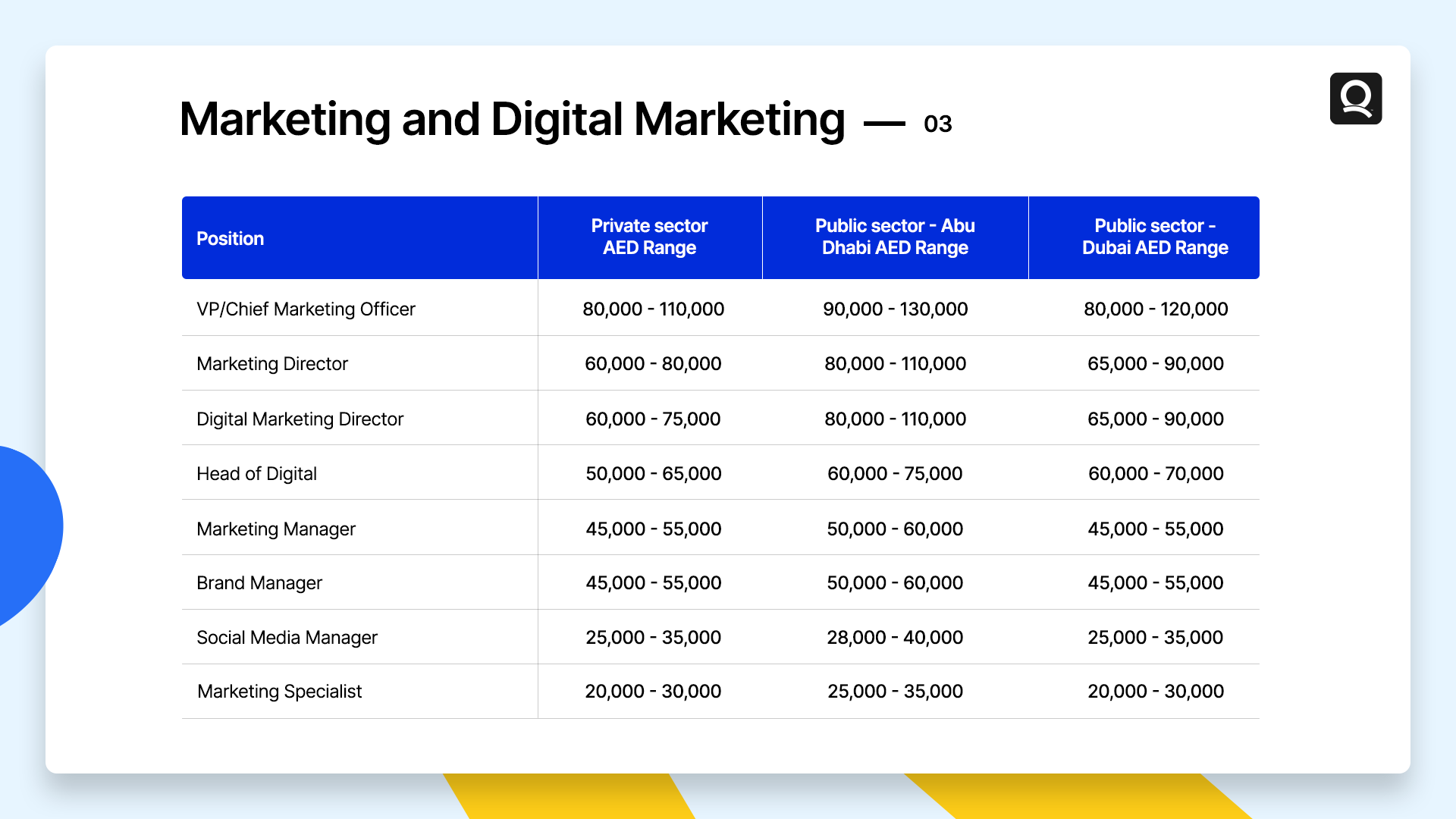
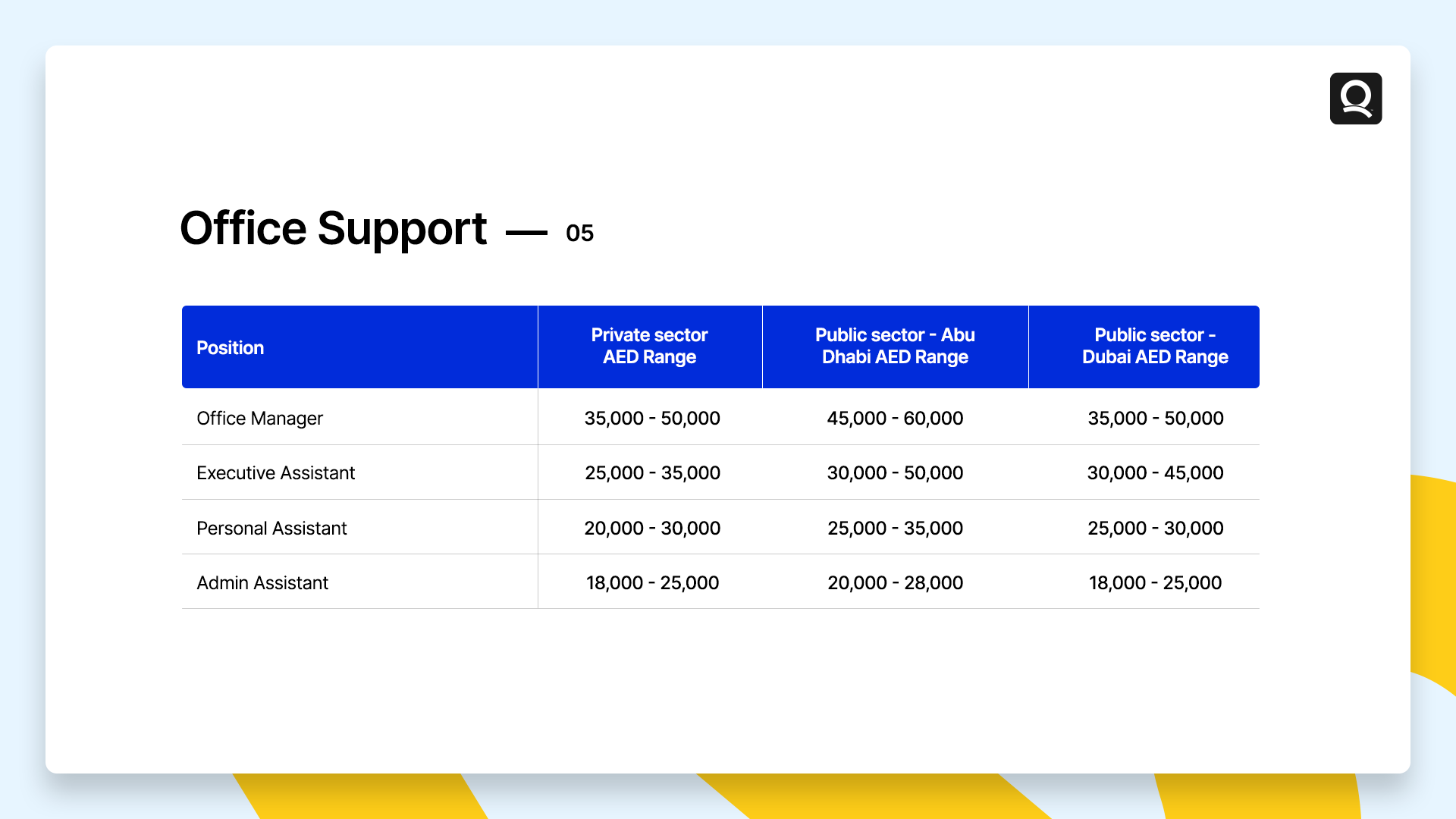
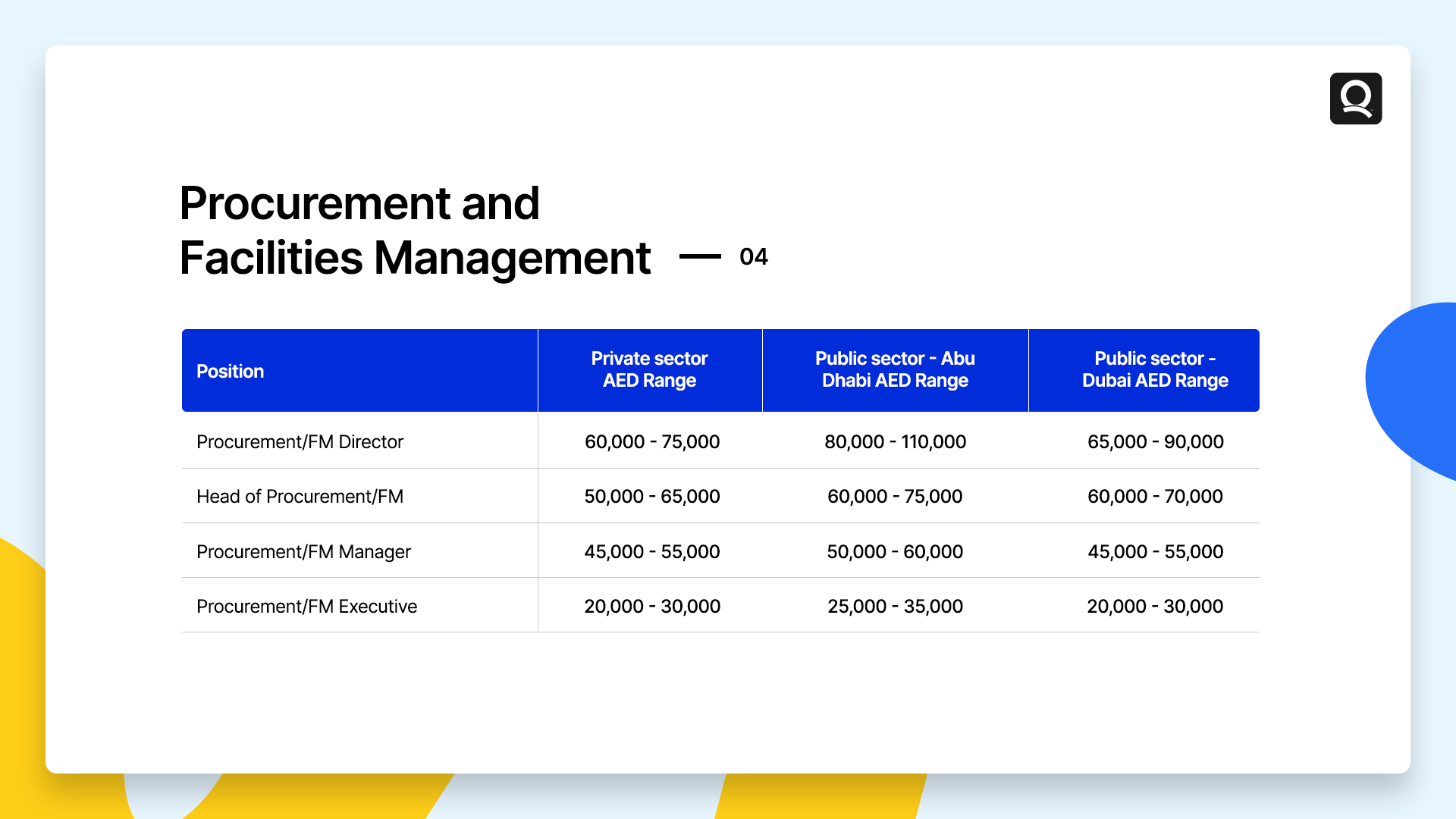
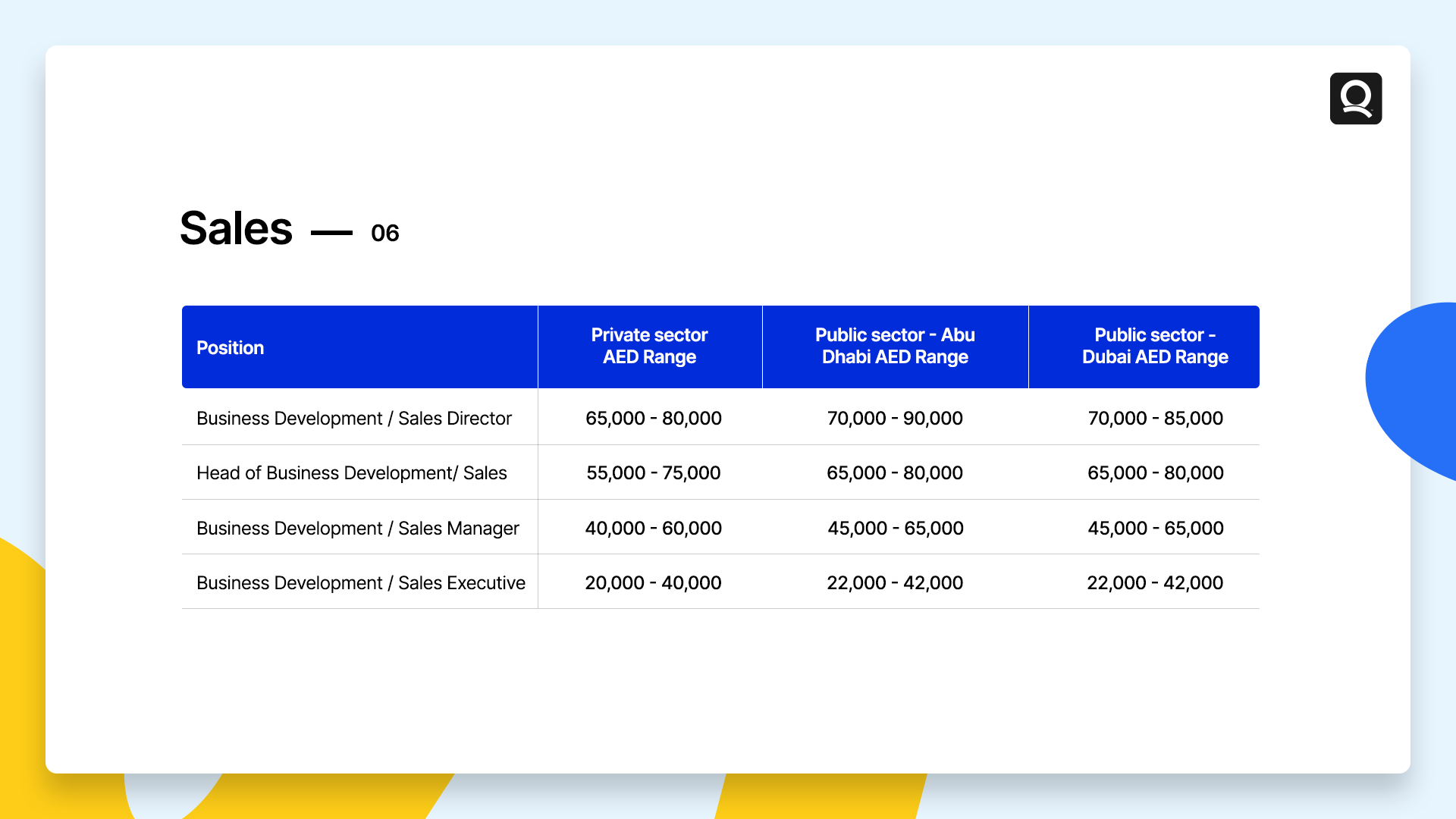
Benefits Trends and Emiratisation (2026)
Emiratisation
Emiratisation continues to shape hiring strategies across the UAE. Hays’ GCC Salary Guide and related coverage show that a meaningful share of employers plan to increase UAE national hiring in 2026, reflecting government policy and incentive programmes. For example, reporting of the Hays survey shows about 46% of employers planning to increase UAE national headcount in 2026. The UAE government also reports notable year-on-year increases in Emirati employment in the private sector, with official MoHRE statistics showing rapid growth in Emirati private-sector employment in 2026.
Suggested: How Emiratisation Boosts The Private Sector?
Benefits gap and retention
Hays and related regional reports emphasise that benefits and career development are key to retaining Emirati staff and other professionals. Employers should design tailored benefits (for example travel/education allowances and flexible work options) and run regular reviews to improve retention.
Suggested: Complete Guide to UAE Labor Laws!
Work-life Balance and Mobility
Work-life balance remains an important factor for employees. Hays’ research and regional commentary show a significant share of professionals who consider work-life balance when changing employers. Gallup and Hays both flag that employee expectations around wellbeing and balance influence retention and attraction.
Suggested: Top Job Posting Platforms for Recruiters in the UAE
High-Demand Roles (2026)
The market continues to need senior technical and specialist talent in sectors such as Technology, Healthcare and Environmental Engineering. Roles commonly cited as in high demand include Data Science, Digital Marketing, Project Management, Business Development and Sales. These are consistent with sectoral hiring signals reported in salary guides and hiring outlooks for the Gulf.
Emirati Workforce Profile
[fs-toc-omit]1. Workforce Shortages
- Sectors with Emirati Talent Needed:
Technology, Healthcare, Environmental Engineering
[fs-toc-omit]2. High-Demand Roles
- Data Science:
Crucial for digital transformation.
- Digital Marketing:
Needed to navigate the digital economy.
- Project Management:
Essential for smart city initiatives.
- Business Development & Sales:
Supports economic diversification and global business hub status.
[fs-toc-omit]3. Valued Skills
- Technical Skills:
Key roles in high-demand sectors.
- Soft Skills:
Adaptability, problem-solving, effective communication.
Suggested: How to Create Work Friendly Culture In UAE
- Language Skills:
Professional Arabic and English proficiency.
- Leadership Skills:
Demand for future leaders with a youth investment focus.
Suggested: Guide on How to Hire Employees in UAE
Final Thoughts
As the UAE’s job market continues to evolve, both employers and employees are prioritizing long-term value over short-term gains. Competitive salaries remain essential, but the growing focus on flexible work models, wellbeing initiatives, and tailored benefits reflects a deeper shift in workplace culture. For organizations, aligning compensation strategies with employee expectations isn’t just about retention, it’s about attracting the next generation of skilled professionals driving the nation’s Vision 2031 goals. Companies that invest in fair pay, meaningful benefits, and career development will be best positioned to thrive in an increasingly dynamic and talent-driven economy.
{{tool-uae="/sandbox/home-v3"}}




